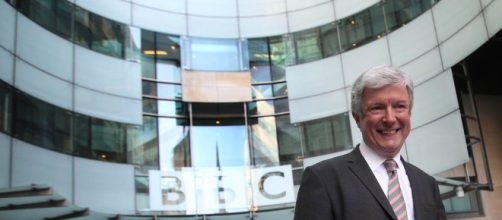As an organisation, the BBC is no longer fit for purpose. Its reputation for providing "free, fair and impartial news" is over. In an age of Brexit and Donald Trump, their bias against these two phenomenons is apparent. President Trump is on the verge of legislating radical tax cuts that will generate wealth for millions of Americans. The BBC ignores this. Yet when he failed to repeal Obamacare, this was news.
"The BBC failed to report on this"
In regards to Brexit, the evidence speaks for itself. Not once have they reported on a positive news story surrounding this process.
The Director-General of the World Trade Organization (WTO), Roberto Azevedo, said himself that Britain will "be just fine" when trading with the EU on WTO rules. Yet the BBC failed to report on this. Instead, they focused on Labour's attacks on the Government, painting a picture of incompetence at the Department for Exiting the EU.
Tonight's BBC Question Time will be located in Scarborough. The panel so far includes Priti Patel, Chuka Ummuna and Yanis Varoufakis. Only one of those three speakers campaigned for Britain to leave the EU last year. The bias against Brexit is overwhelming. Not many people have a problem with the BBC choosing a political stance; the issue is that taxpayers have to pay for it when they have suffered enough this decade during an age of austerity.
Why should taxpayers have to fork out for their licence fee when they do not agree with the BBC's views?
Some would argue the BBC is not anti-Brexit or anti-Conservative; it is neutral. In his book, Live From Downing Street, Nick Robinson revealed that both Tory and Labour prime ministers had a poor relationship with the state broadcaster. He said Harold Wilson loathed the corporation and that relations between the BBC and the government reached an all-time low during the Blair years.
At this year's Labour Party Conference, BBC journalist Laura Kuennsberg had to be protected by bodyguards in case far-left activists attacked her. This demonstrates the state broadcaster can provide both parties equal scrutiny, but nowadays, too many viewers see it as a left-wing organisation.
The Guardian polled Tory voters in 2013 and discovered 27 per cent of them felt the organisation was too biased towards the left.
"The licence fee was a sensible policy"
The licence fee was a sensible policy when there was one TV channel. These days there are too many to choose from and consumers have to pay for services like Netflix and Sky to receive a decent television choice. Taxpayers would save huge swathes of money if the BBC was privatised and the state broadcaster was made to survive off advertising revenue. In March 2015, its annual income was £4.8 billion. Sky's was £7.8 billion. Imagine how much profit the former could make if it was liberated from state control.
Privatisation would also provide the BBC with the freedom to compete with global services like Google and harness huge returns in revenue to meet rapidly growing demand.
Instead, it is a purely British service in the hands of public ownership. The organisation cannot produce a variety of programmes if it is not free to compete on the international stage.
If the case can be made for a global Britain, the same can be made for a global BBC. It's time there was a government bold enough to take advantage of that opportunity.

